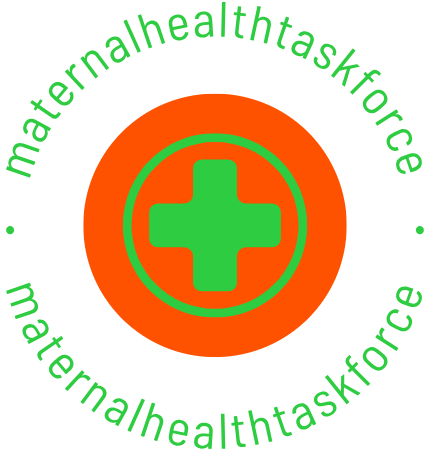The postpartum period, often called the “fourth trimester,” is a crucial time for new mothers as their bodies recover from childbirth and adapt to the demands of caring for a newborn. Prioritizing maternal health during this time is essential for both physical and mental well-being. Here are the best maternal health practices that can aid postpartum recovery, with a focus on best exercises for maternal health, nutrition, and emotional support.
Physical Recovery
After giving birth, the body goes through significant changes. It’s essential to give it the proper care it needs to recover effectively. Engaging in gentle exercises and gradually increasing physical activity can enhance recovery while preventing complications.

Best Exercises for Maternal Health
Engaging in postpartum exercises, once cleared by a healthcare provider, is a fantastic way to rebuild strength and energy. Here are some exercises that are safe and effective for new mothers:
- Pelvic Floor Exercises (Kegels): One of the most important exercises for postpartum recovery, Kegels strengthen the pelvic floor muscles, which often weaken during pregnancy and delivery. These exercises help prevent incontinence and support pelvic health.
- Walking: Walking is a low-impact exercise that helps improve circulation, reduce swelling, and boost energy. Starting with short walks and gradually increasing the duration and intensity can make a big difference.
- Gentle Stretching: Stretching helps relieve muscle tension and increase flexibility. Focus on areas like the back, hips, and legs, which can feel tight after childbirth.
- Postnatal Yoga: Yoga helps improve flexibility and strength, but it also promotes relaxation and reduces stress. Postnatal yoga classes focus on poses that are safe for new mothers and help with physical recovery and mental well-being.
Nutrition for Postpartum Health
Proper nutrition plays a significant role in postpartum recovery. After childbirth, the body needs to replenish its energy stores and heal from the physical demands of labor. A balanced diet filled with nutrient-dense foods will support this healing process.
Key Nutrients for Recovery
- Protein: Protein is essential for tissue repair and rebuilding muscles. New mothers should include lean meats, fish, eggs, beans, and legumes in their diet.
- Iron: After childbirth, many women experience a drop in iron levels, which can lead to fatigue. Including iron-rich foods such as spinach, red meat, and fortified cereals can help restore energy levels.
- Calcium: Calcium is crucial for bone health, especially if the mother is breastfeeding. Dairy products, leafy greens, and fortified plant-based milk are excellent sources of calcium.
- Hydration: Staying hydrated is key for milk production and overall health. Drinking enough water throughout the day is crucial, especially for breastfeeding mothers.
Emotional Well-being
Postpartum recovery is not just about physical healing—it’s equally important to support emotional health. New mothers may experience a range of emotions, from joy and excitement to fatigue and anxiety. Taking care of mental health is just as essential as focusing on physical recovery.
Managing Postpartum Emotions
- Rest and Sleep: Sleep deprivation is common for new mothers, but getting adequate rest is essential for emotional well-being. Sleep when the baby sleeps, and don’t hesitate to ask for help when needed.
- Mindfulness and Meditation: Practicing mindfulness or meditation can help manage stress and promote emotional stability. Simple breathing exercises or guided meditations can offer moments of calm during a busy day.
- Support Networks: Connecting with other new mothers, whether through in-person groups or online communities, can provide much-needed emotional support. Sharing experiences and advice can help reduce feelings of isolation.
Medical Follow-up
Regular medical check-ups are essential during postpartum recovery. These visits allow healthcare providers to monitor the mother’s recovery and address any complications early.
Postpartum Check-ups
- Six-week Check-up: Typically, mothers will have a postpartum check-up six weeks after delivery. This visit is crucial for evaluating how the body is healing and discussing any physical or emotional concerns.
- Mental Health Screenings: Postpartum depression is a common issue many new mothers face. Regular mental health screenings help identify any emotional struggles early, so they can be addressed promptly.
- Lactation Support: For mothers who choose to breastfeed, lactation consultants can provide valuable guidance and support to help with any breastfeeding challenges.
Creating a Balanced Routine
Returning to a routine after childbirth can take time, but finding a balance between caring for the baby and taking time for self-care is vital for long-term health.
Setting Realistic Goals
- Gradual Progress: Recovery takes time, so it’s essential to set realistic expectations. Start with short, manageable tasks and increase them as your body allows. Whether it’s walking or practicing yoga, pacing yourself is key.
- Self-compassion: Remember that every postpartum recovery journey is different. Avoid comparing your progress to others and focus on listening to your body’s needs.
Supporting Maternal Health Through Accessible Digital Leisure
Maternal health care often involves periods of rest and recovery, during which accessible and low-stress entertainment can play an important role in wellbeing. Platforms offering no deposit casino online games provide a way for new and expecting mothers to unwind safely without financial pressure, promoting mental relaxation alongside physical health.
Conclusion
Postpartum recovery is a delicate process that requires attention to both physical and emotional health. Incorporating the best exercises for maternal health, such as Kegels, walking, and gentle stretching, can aid physical recovery and restore strength. A well-balanced diet filled with essential nutrients like protein, iron, and calcium supports healing, while emotional well-being practices like mindfulness and support networks ensure mental health remains a priority. By following these best maternal health practices, new mothers can enjoy a smoother, healthier recovery postpartum.










